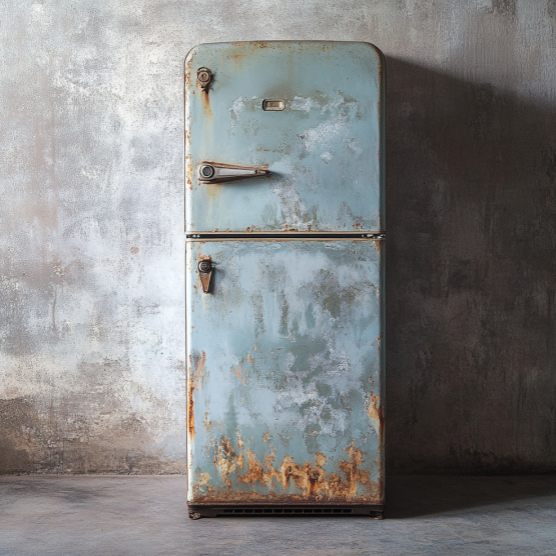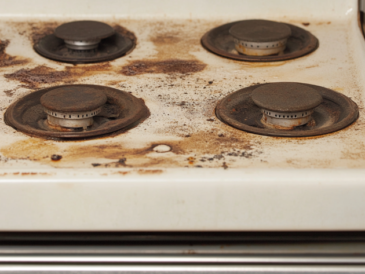The freezer is a silent workhorse in many households, preserving food and ensuring we always have frozen goods at hand. Yet, like all appliances, freezers have a lifespan, and an aging model can pose challenges related to safety, efficiency, and practicality.
Take my brother, for example—his unwavering faith in his 22-year-old freezer has sparked debates about whether it’s truly “still good.” This article explores the key factors you should consider when deciding whether to repair or replace an aging freezer.
Understanding Freezer Lifespan: How Long Should It Last?
Freezers typically last 12 to 20 years, though this depends on factors like brand, model, and maintenance. While some exceed this range, performance often diminishes over time. Recognizing the typical lifespan of a freezer is crucial when weighing repair costs against the benefits of upgrading.
Signs It’s Time to Replace Your Freezer 🚨
Older freezers don’t just stop working—they often send warning signals that they’re nearing the end of their useful life. Here are some red flags:
- Excessive Frost Buildup: Constant defrosting is a sign of failing seals or outdated technology.
- Inconsistent Temperatures: If food is thawing or freezing unevenly, the freezer’s cooling system may be struggling.
- Unusual Noises: Grinding, clicking, or humming sounds often point to mechanical problems.
- High Energy Bills: Older freezers consume more electricity as they age, especially if they run continuously.
- Frequent Repairs: When repair costs rival or exceed the price of a new unit, it’s time to upgrade.
Energy Efficiency: The Case for Modern Freezers 🌱💡
Advances in technology have made new freezers significantly more energy-efficient than their older counterparts. Here’s why upgrading makes sense:
- Lower Electricity Bills: Energy-efficient models consume less power, reducing monthly utility costs.
- Environmental Benefits: Modern appliances emit fewer greenhouse gases and use eco-friendly refrigerants.
- Enhanced Features: New freezers come with smart technology, better insulation, and advanced cooling systems for improved performance.
Safety Concerns with Aging Freezers 🚨
Keeping a 20+ year-old freezer isn’t just about energy use; safety should be a top priority. Older units can pose risks such as:
- Electrical Malfunctions: Aging wiring can become a fire hazard.
- Refrigerant Leaks: Outdated refrigerants can be harmful to health and the environment.
- Food Safety Issues: A freezer struggling to maintain temperature increases the risk of spoilage and foodborne illnesses.
Environmental Impact of Keeping Old Freezers 🌍
Old freezers often rely on refrigerants like CFCs or HCFCs, which harm the ozone layer. Moreover, their energy inefficiency contributes to higher carbon emissions. By replacing an outdated model, you’re making a greener choice that benefits the planet.
Repair or Replace? A Cost-Benefit Analysis 💸
When deciding whether to repair or replace an aging freezer, consider the following:
Repair:
- Suitable for minor issues on newer units.
- Ideal if repair costs are less than 50% of the appliance’s value.
Replace:
- More cost-effective for freezers older than 15-20 years.
- Ensures better performance, energy savings, and fewer future repairs.
Expert Opinions on Freezer Longevity 🛠️
Appliance experts often recommend replacing freezers after the 15-20 year mark, even if they appear to be functioning. Consult a professional for an assessment if you’re unsure about your freezer’s condition.
Maintaining an Older Freezer: Tips for Longevity 🛠️
If you choose to keep your old freezer, here’s how to maximize its lifespan:
- Clean the Coils: Dust and debris can hinder efficiency.
- Inspect Door Seals: Replace worn gaskets to prevent cool air leaks.
- Monitor the Temperature: Keep it at 0°F (-18°C) for optimal freezing.
- Defrost Regularly: Frost buildup reduces efficiency.
Conclusion: Making the Smart Choice
Deciding whether to replace an old freezer involves balancing safety, efficiency, and environmental impact against sentimental attachment or perceived value. While my brother’s 22-year-old freezer may hold fond memories, it’s likely no match for today’s efficient, eco-friendly models.
The bottom line? If your freezer shows signs of wear, replacing it can save money, reduce risks, and ensure peace of mind.
What’s your freezer story? Share it with us below!




